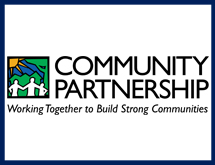Top Tips 2022 – Making Sense of Money: Workplace Financial Literacy
Article provided by Community Partnership of the Ozarks
Financial stress, many times due to a lack of financial literacy, is currently affecting millions of people at home and at work. According to a recent Society for Human Resources Management study, 83% of HR professionals reported that personal financial challenges had an impact on overall employee performance. A study conducted by PricewaterhouseCoopers found that almost half of employees who are worried about their financial health are less productive at work, spending at least three hours each week dealing with personal financial issues.
In 2016, Community Partnership of the Ozarks (CPO) began working with local employers to bring our Making Sense of Money Financial Literacy Program onsite to businesses through our Workplace Partnerships Initiative. These local employers sought to offer employees wellness opportunities beyond physical and mental health. We partnered with them to offer our 4-week Basic Budgeting Series and other tailored financial literacy workshops. We have provided financial literacy onsite to more than 150 employees with more than 75% of these employees completing our Basic Budgeting Series and earning a Savings Goal Match. A Savings Goal Match is offered to participants that complete all four weeks of the Basic Budgeting Series, have opened a savings account with a FDIC insured bank or credit union and have reached their savings goal over a minimum of three months after completing the series. Participants have up to 12 months to meet their goal.
By incorporating financial literacy into the workplace, businesses and employees reap many benefits, including increased productivity and retention. Financially literate employees tend to have greater focus and less stress, making them more effective. Lower stress levels, in turn, have been linked to lower health care costs and absenteeism. Financially literate employees also have an enhanced understanding of their total benefits rewards and how to better utilize the value of their 401(k) plans, health and disability benefits, and tuition and profit-sharing plans; they even have an easier time managing within high-deductible health insurance plans. Financial literacy carries through to employees' jobs, as well, in terms of increased business acumen. Starting a financial literacy program does not need to be a huge undertaking as you can partner with an organization dedicated to the financial health of the entire community. CPO has provided financial literacy education to the community for over 15 years and can offer several options to employers that are interested in implementing a financial literacy program for their employees onsite at their location. CPO will deliver a well-developed curriculum and solid foundation to increase the financial health and wellness of participating employees.
For more information about Making Sense of Money Workplace Financial Literacy opportunities, contact Patricia Deck at (417) 888-2020 or pdeck@cpozarks.org.

